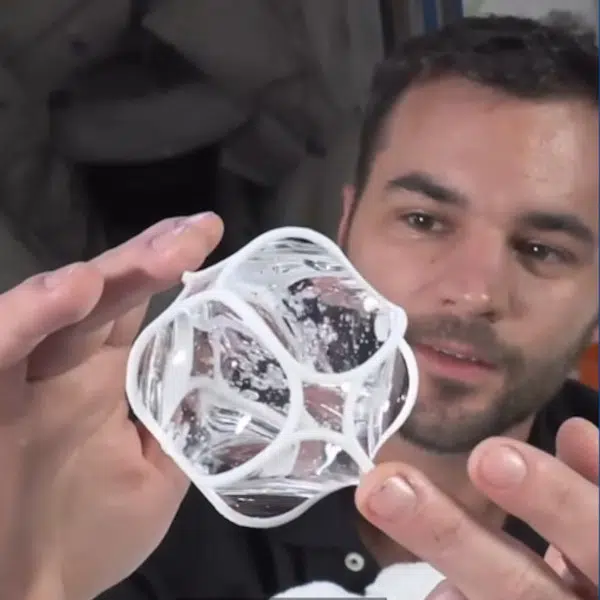
Photo: Tatomm/Depositphotos
It's hard—if not nearly impossible—to truly measure intelligence. And while there are plenty of tests out there, many don't account for things such as perspective and observation, which can say more about a person than their abilities to quickly solve a math problem, for example.
Drawing from this, Yale University Professor Shane Frederick created the “Cognitive Reflection Test (CRT),” considered the “world’s shortest IQ test” as it is made up of only three questions. (Scroll down for the CRT and the correct answers and solutions to these three problems.)
This cognitive test was conceived to measure a person’s cognitive ability through their psychometric scores, which measure individuals' mental capabilities and behavioral style.
Frederick published a report about his test in the Journal of Economic Perspectives in 2005. The researcher shares that one of his peers, named Daniel Kahneman, classified the psychology behind people’s responses into two categories: “System 1” and “System 2.” In the System 1 process, the quiz takers answered quickly and mindlessly, while those under System 2 executed their mental operations requiring effort, motivation, concentration, as well as experience of learned roles. In most of these questions, the impulsive (System 1) answers turned out to be incorrect.
Beyond the explanation of what people’s responses to the three-item CRT revealed, Frederick shared that he aimed for his test to help determine certain abilities that often go unnoticed and not measured, and how people with high cognitive abilities usually live longer, earn more, have larger working memories, and have faster reaction times.
The researcher says, “Despite the diversity of phenomena related to IQ, few have attempted to understand—or even describe—its influences on judgment and decision making.”
Cognitive Reflection Test
The questions are as follows:
- A bat and a ball cost $1.10 in total. The bat costs $1.00 more than the ball. How much does the ball cost?
- If it takes five machines five minutes to make five widgets, how long would it take 100 machines to make 100 widgets?
- In a lake, there is a patch of lily pads. Every day, the patch doubles in size. If it takes 48 days for the patch to cover the entire lake, how long would it take for the patch to cover half of the lake?
CRT Answers and Solutions
The correct answers for the questions are “5 cents,” “five minutes,” and “47 days,” respectively, but there's much more to each of them. Dr. Lyndon Walker, a former statistics and finance lecturer, explained each one in a video.
Solution 1
For the first question, a quick response might be “10 cents” if one were to simply subtract 10 cents from $1.10. However, the number 10 refers to cents while the number 1.10 refers to dollars. Instead, if it is assumed the ball’s cost is x dollars, the bat’s cost would be (x+1) dollars, hence the equation: x + (x + 1) = 1.10. Working through the equation, you’d wind up with x=0.05, which equates to 5 cents.
Solution 2
In the second problem, given that five machines take five minutes to build five widgets, the quick response may be 100 machines build 100 widgets in 100 minutes. But in reality, if five machines take five minutes to build five widgets, it means that if there are 100 machines, then in every five minutes, each set of five machines will make five widgets, which would offer a total 100 widgets. Thus, the correct answer is five minutes.
Solution 3
In the third one, things get even trickier. If the patch doubles in size every day, and if it takes 48 days to cover the entire lake, the professor suggests to assume the lake's size is 2x. Given the size on the last day was double the size of the previous day, the previous day’s patch size was x. So, it took 48 minus one, that is 47 days to cover x, which is half the lake.
h/t: [Good]
Related Articles:
This Reverse Ishihara Vision Test Only Works If You’re Colorblind
Take This Quick IQ Quiz to Test Your General Knowledge [Quiz]
Crows Appear To Have a Form of Intelligence Thought To Be Reserved for Humans
Smart Raven Figures Out How To Use a Stick as a Tool To Retrieve Food Trapped in a Tube






















































































